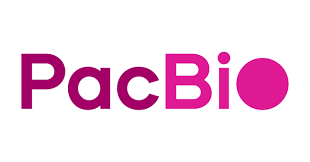Channels
Special Offers & Promotions
PacBio Joins the 1000 Genomes Long Read Project to Add Isoform Sequencing with Kinnex and Revio

New Iso-Seq data from ~1,000 samples to expand transcriptomic insights using highly accurate HiFi sequencing
PacBio, a leading developer of high-quality, highly accurate sequencing solutions, announces it has joined the 1000 Genomes Long Read Sequencing Project, which will involve contributing long-read transcriptome data to one of the world’s most expansive human genomics initiatives. In collaboration with the laboratories of Danny Miller, MD, PhD, Evan Eichler, PhD, at the University of Washington, and Rajiv McCoy, PhD at the McCoy Lab at Johns Hopkins University, PacBio will contribute full-length isoform sequencing using its Kinnex RNA kits and Revio sequencing platform.
The collaboration will add Iso-Seq data for approximately 1,000 samples from the 1000 Genomes cohort, offering new transcript-level views across a globally diverse and deeply characterized human population. By expanding the functional layer of this foundational reference, the project aims to support more accurate interpretation of gene expression, splicing, and regulatory elements across populations and to provide a shared resource for tool development and benchmarking for the broader genetics community.
“Adding full-length isoform sequencing to the 1000 Genomes Project represents a unique opportunity to enrich this foundational resource,” said Dr. Miller, Assistant Professor at the University of Washington and lead investigator of the project. “This effort will deliver a dataset and analysis framework that supports diverse applications, from basic biology to rare disease diagnostics. By integrating isoform-level information, we’ll be better positioned to understand gene regulation, alternative splicing, and the transcriptomic complexity that underlies human health and disease.”
Sequencing is being carried out on 1,000 cell lines using PacBio’s Kinnex RNA kits and Revio long-read platform, with each sample expected to yield around 10 million full-length transcript reads. Work is underway at both the Eichler Lab at the University of Washington and the Seattle Children’s Research Institute, with additional analysis support from the McCoy Lab at Johns Hopkins University. Together, the collaborators aim to deliver a high-quality, open-access RNA resource and build scalable bioinformatics pipelines to support the fast-growing long-read transcriptomics field.
“Isoform sequencing is one of the most powerful applications of our HiFi technology,” said David Miller, Vice President of Global Marketing at PacBio. “We are incredibly excited to support this important initiative with our partners at the University of Washington and Seattle Children’s. This collaboration underscores the value of long-read sequencing in understanding human biology and brings us closer to realizing the full potential of long-read genomes and transcriptomes.”
In addition to generating new scientific insights, the project prioritizes transparency, open data, and tool development. All sequencing data and analysis pipelines will be made publicly available to promote reproducibility and accelerate downstream research. The group plans to present early findings from this work at the upcoming American Society of Human Genetics (ASHG) conference.
This effort continues the 1000 Genomes Long Read Sequencing Project’s commitment to building open and globally representative genomic resources to advance equity, access, and innovation in human genetics research.
About PacBio
PacBio (NASDAQ: PACB) is a premier life science technology company that designs, develops, and manufactures advanced sequencing solutions to help scientists and clinical researchers resolve genetically complex problems. Our products and technologies, which include our HiFi long-read sequencing, address solutions across a broad set of research applications including human germline sequencing, plant and animal sciences, infectious disease and microbiology, oncology, and other emerging applications.
About the Miller Lab
The Miller Lab at the University of Washington focuses on advancing genomics in clinical diagnostics, particularly in the context of rare diseases. The lab is committed to developing tools and resources that democratize access to cutting-edge genomic technologies.
Media Partners


